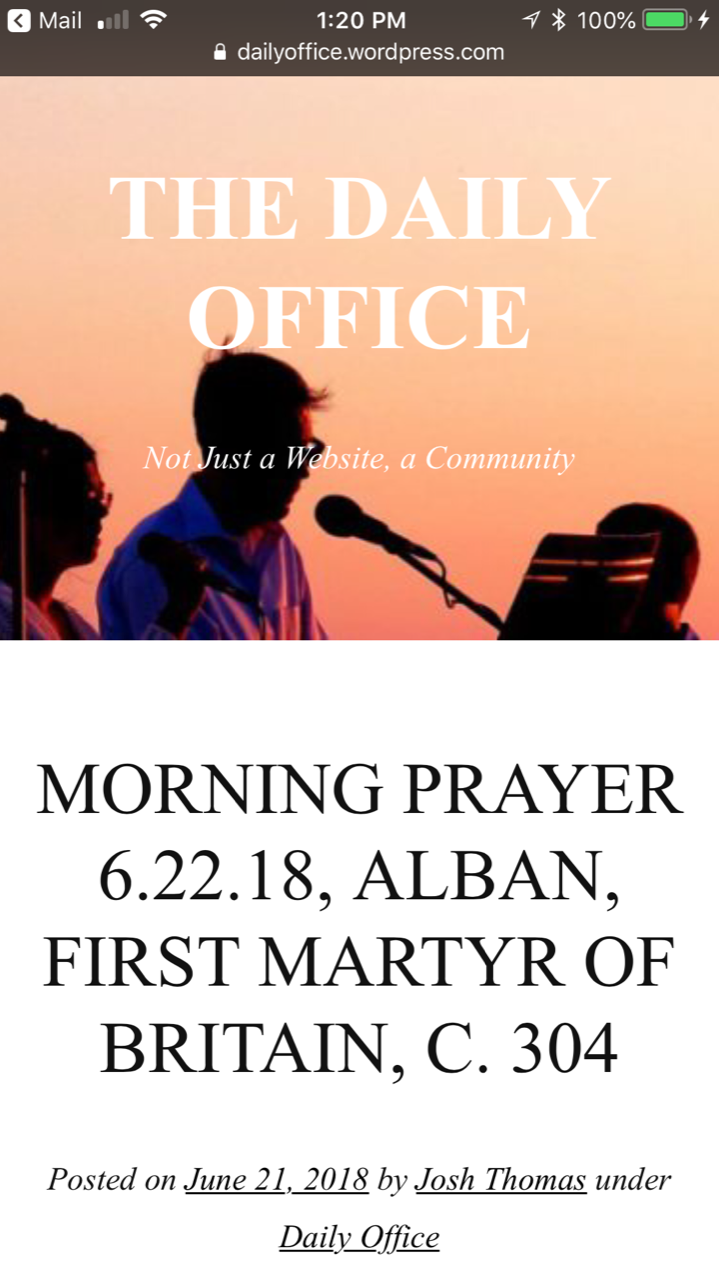Prejudice and the Daily Office
“Do not let the oppressed be shamed and turned away;
Never forget the lives of your poor.” The Daily Office, https://dailyoffice.org .
If I cannot attend the office of Morning Prayer at St. Mark’s, I try to read it from this website. If you do not know about this Daily Office website, you are in for a new adventure. Besides having all the readings right there in front of you for morning and evening and noon day prayer, the Lay Vicar, Josh Thomas, of the website offers hymns and pictures that relate to the readings and offers prayer petitions from those who send to them. It is not just a website but a community praying individually as well as participating in a live broadcast of morning and evening prayer service twice a day from the site. I always feel connected to pray-ers all over the world when I connect to The Daily Office.
As I read these prayers through this community, my mind takes me out of my own problems, and I move more globally. I see the children and families of Latino origin who are still separated and incarcerated at our southern border with Mexico. I cannot stop thinking and praying about them and those who are making and supporting a policy that has brought on great tragedy.
Then I remember an episode yesterday from our food pantry. I go to St. Mark’s weekly food pantry just meet and talk with those who come for their groceries. I see a brown colored woman with black hair and three children with similar appearance come in who seem to be confused about the process. I immediately think they must be Latino and motion to our member who speaks Spanish to go over and help them. The mother tells him she speaks English. Later, as I talk with the children I realize they are Native American.
I learn about my own prejudice that all brown skinned people must be of a certain heritage. I cannot condone the prejudice of those who are harming immigrant children and their families who are seeking asylum in our country, but I have a little insight into my own darkness.
I make amends to the family and hope I have learned some life lessons taught to me by those who were here in this land long before me.
Joanna joannaseibert.com


